What to do with a peace lily after flowering – experts share how to encourage returning blooms that last longer
Don't give up on your peace lily just because it has finished flowering. With some essential care, it can put on an impressive display once again
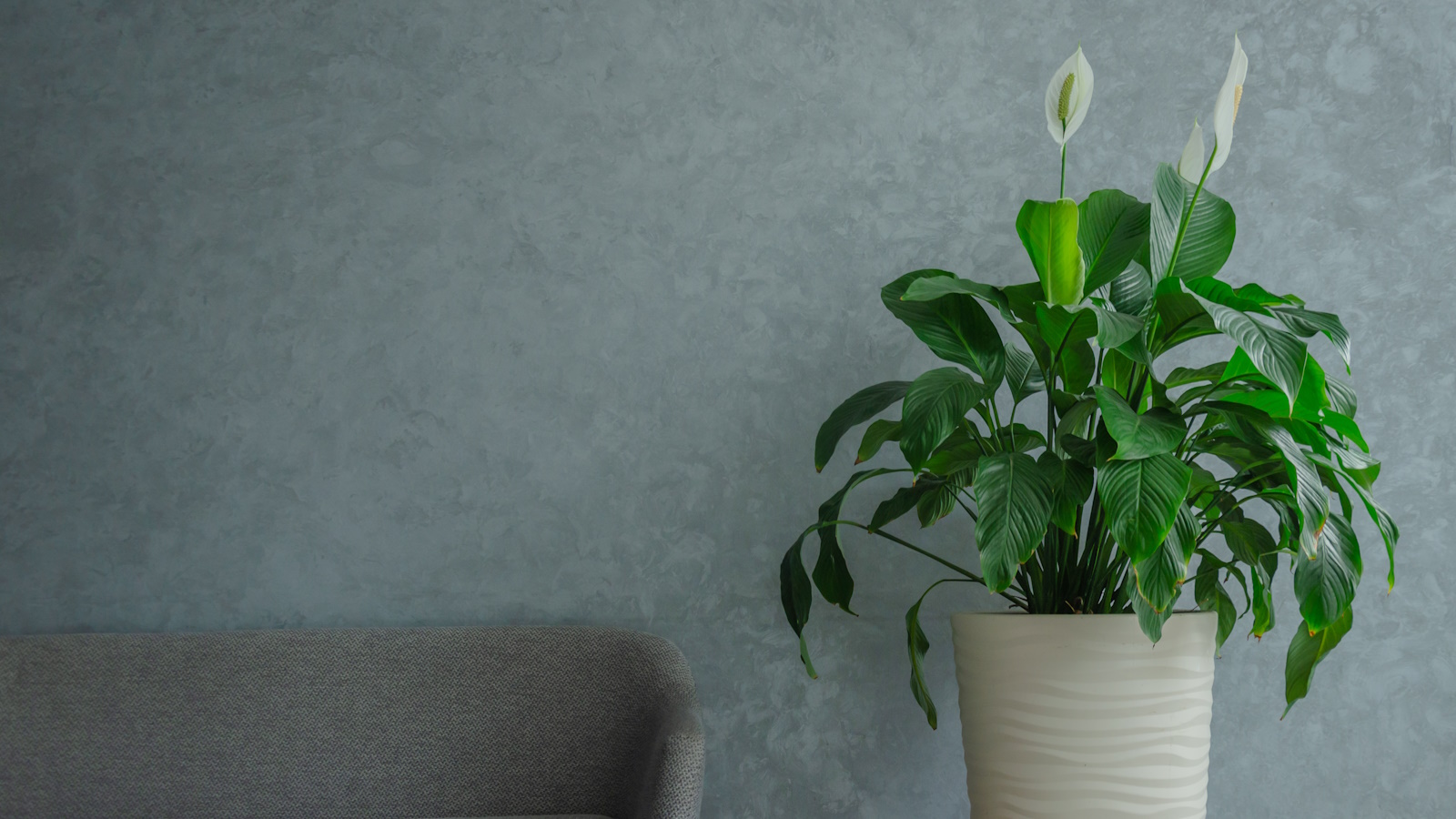

When you're passionate about your houseplants and make sure to give them optimal care, it can be a concerning sight to see their foliage and flowers not looking their best. However, this isn't necessarily something to worry about as many indoor plants have a growing cycle they go through.
If you have a peace lily, you'll notice that after several months of blooming its sophisticated flowers will start to fade. As with other indoor flowering plants, this is the normal lifecycle of peace lilies and it doesn't mean that they're dying and ready to discard. In fact, there are a few things you can do once your peace lily has finished flowering to encourage returning, long-lasting blooms.
We've spoken to experts about what to do with a peace lily after flowering and they shared tips for getting this beautiful houseplant to bloom once again.
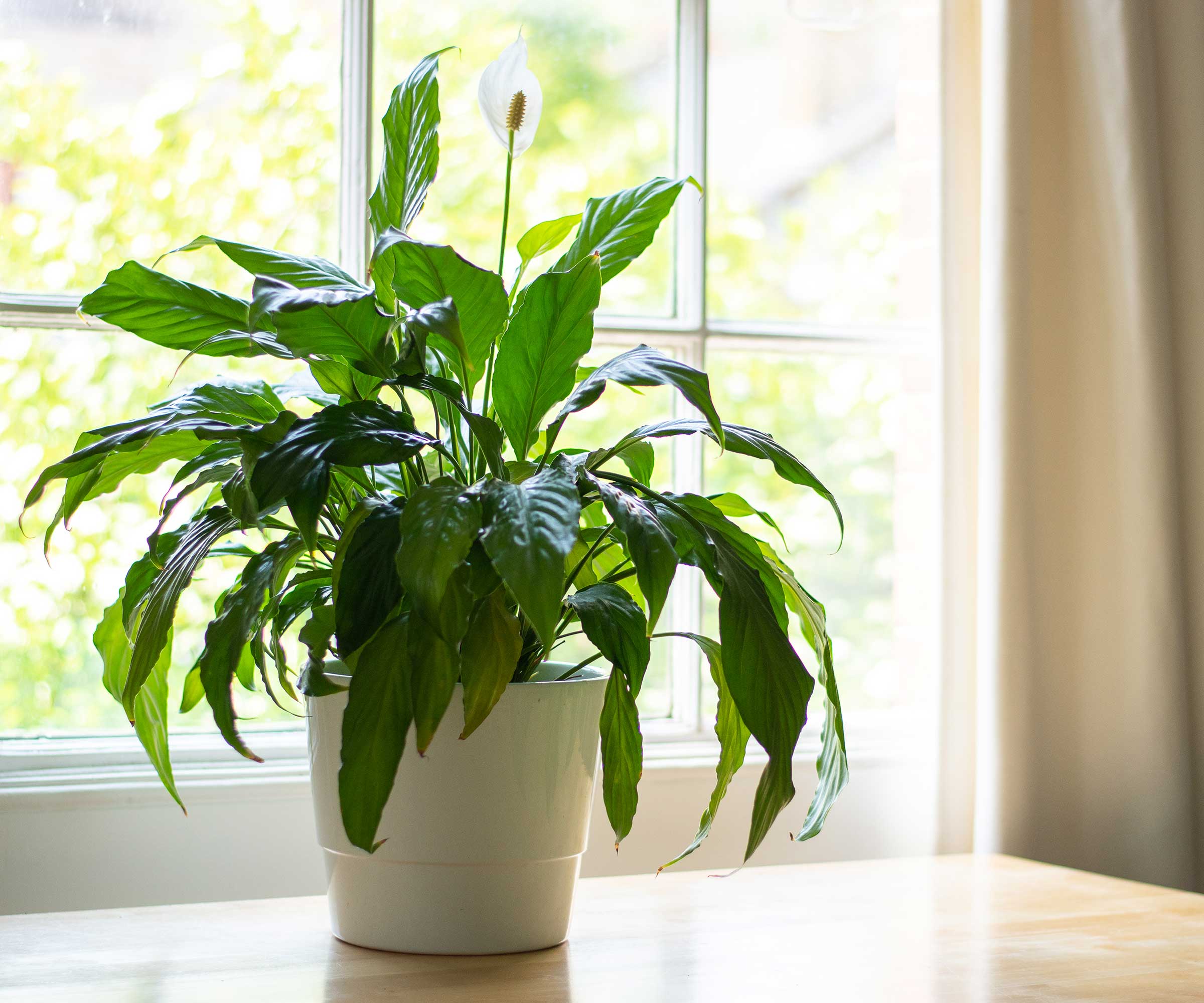
What to do with a peace lily after flowering
Don't panic once your peace lily flowers start to fade. Experts have shared with us a few things you can do to get them to bloom again.
Deadhead spent flowers
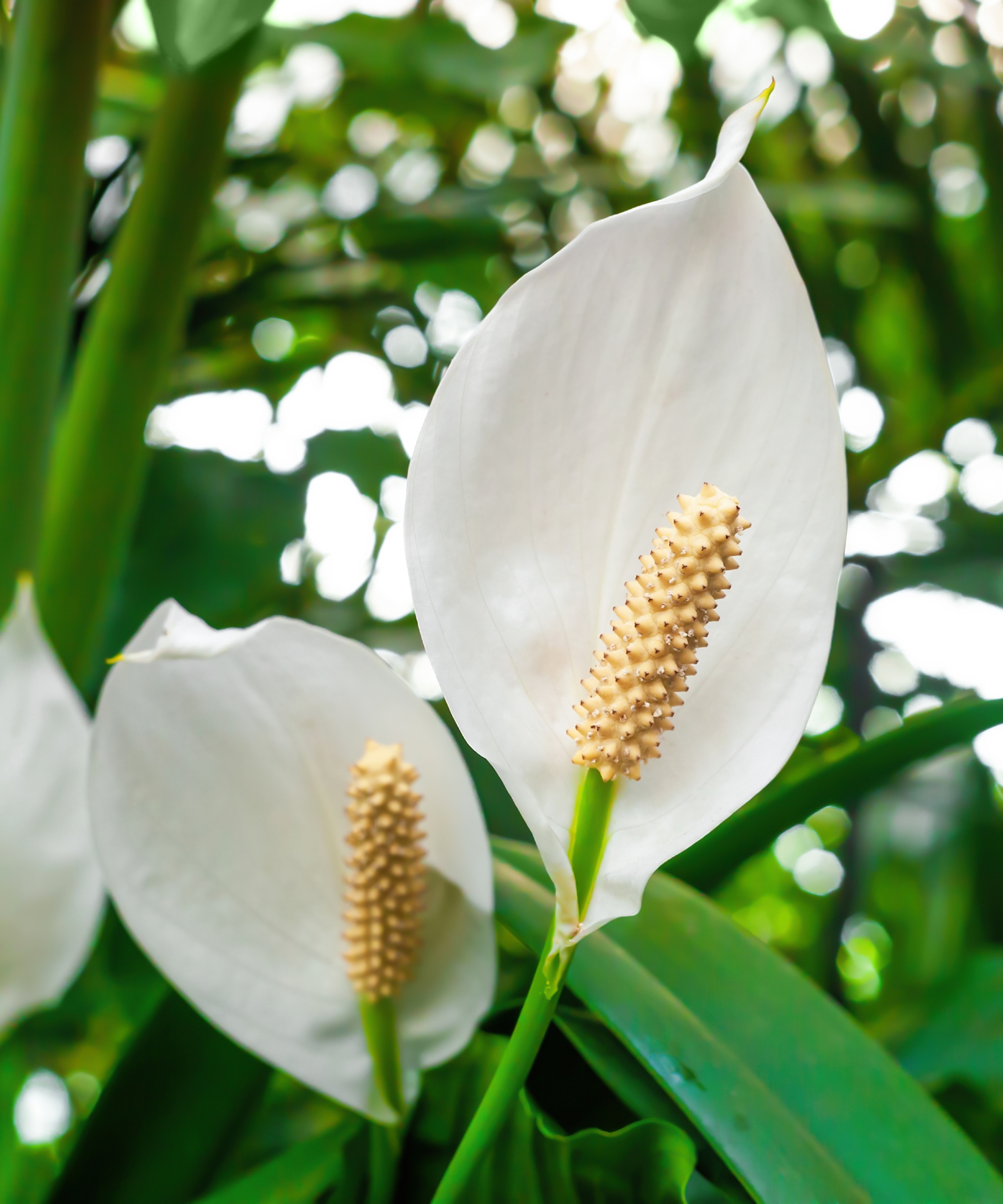
It's important to deadhead indoor flowering plants once blooms fade. This is because the energy to keep it blooming has been spent and you now want to redirect energy to the foliage that is still growing.
'By cutting off the old blooms, the plant redirects its energy from seed production to creating new flowers, resulting in prolonged blooming periods and potentially more abundant blooms,' says Autumn Janus, plant expert from Perfect Plants.
'So, deadheading serves not only an aesthetic purpose by tidying up the plant but also plays a vital role in promoting continuous flowering throughout the growing season,' she adds.
You can easily deadhead peace lilies by using clean and sharp essential gardening tools, like these micro-tip pruning snips from Amazon.
You'll know it's time to get deadheading when your peace lily is drooping an flowers are starting to discolor. Take your pruning shears and cut at the base of the stem to remove the spent flowers.

Autumn is a horticulture specialist and marketing professional at Perfect Plants Nursery. With four years of experience in the horticulture industry, she has developed a passion for helping people create beautiful indoor and outdoor spaces to enjoy. Her expertise in horticulture encompasses a broad range of activities, including plant care and selection, landscape design, and maintenance.
Prune away any dead foliage
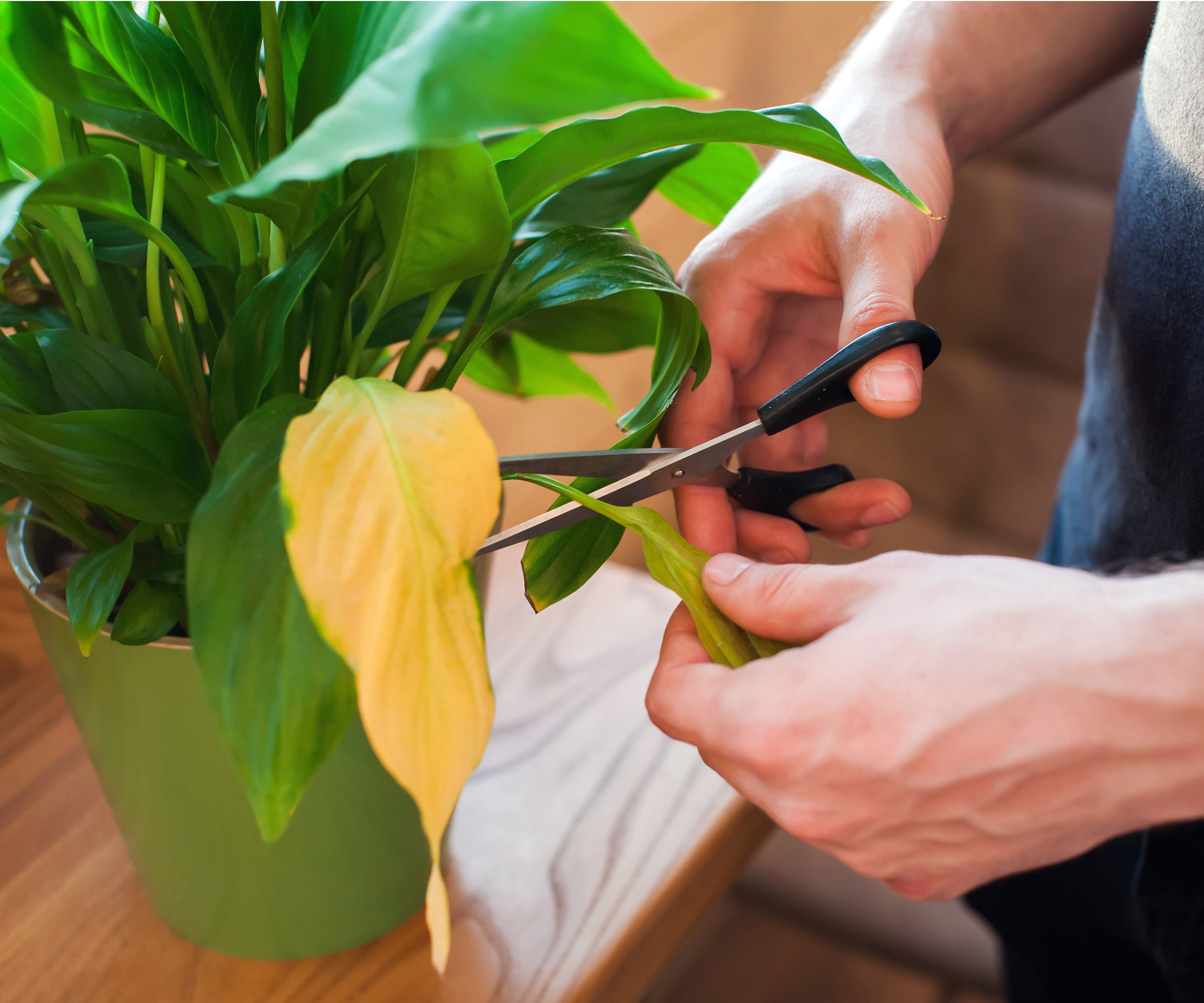
You might also notice your peace lily leaves turning brown or your peace lily foliage is turning yellow alongside your plant not flowering.
'If there are any damaged or yellowed leaves, trim them off to maintain the plant's health,' says Autumn.
Removing any damaged and dead foliage will help encourage new growth. 'This can redirect the plant's energy towards blooming,' Autumn adds.
If discoloring foliage continues after you have pruned your plant, it could be a sign that your peace lily needs repotting. A pot that is too small can cause your peace lily to become pot-bound, resulting in struggling foliage.
Continue providing optimal care for your peace lily
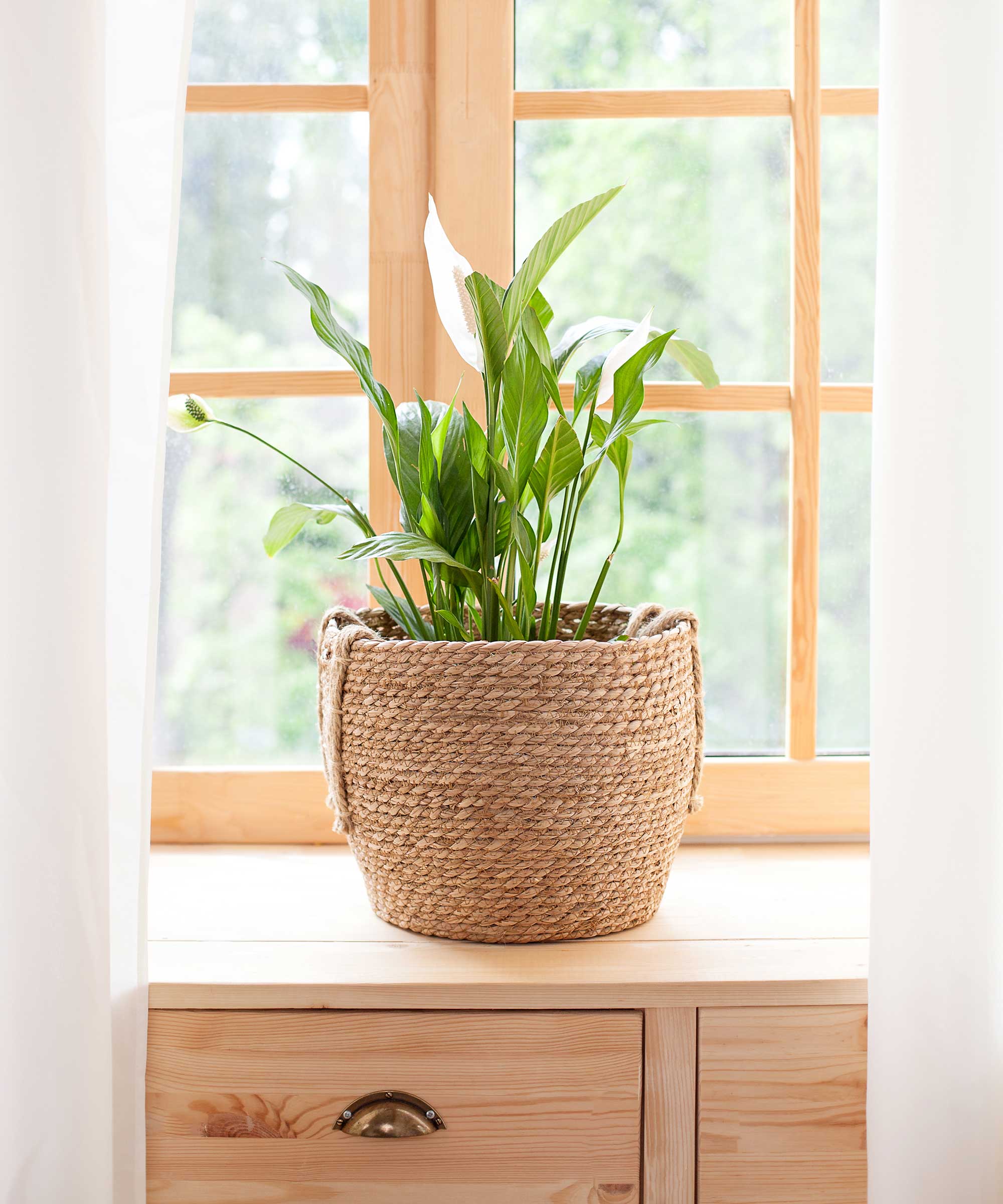
Once you have got your peace lily in better shape, you need to ensure it is still looked after while it isn't flowering.
'The plant will bloom again over time if you provide it with proper care,' says Anastasia Borisevich, plant expert at Plantum. 'All you need to do is provide your plant with optimal care and allow it to replenish its strength for the next blooming season,' she adds.
This includes meeting moisture and lighting requirements. 'Maintain a consistent watering schedule, ensuring the plant's soil remains slightly moist. Place the peace lily in indirect light and keep it away from drafts or extreme temperature changes,' says Autumn.
'Peace lilies also thrive in high humidity,' Autumn adds. You can increase humidity for houseplants in a number of ways, including using this mister from Amazon or this humidifier from Amazon.

Anastasia is a plant expert at the plant advice app, Plantum. She helps to identify plants and diagnose problems, as well as advising on care advice.
FAQs
Should you fertilize a peace lily while it isn't flowering?
Peace lilies will flower for a few months at a time before the blooms fade. You should still provide optimal care for your peace lily when it isn't blooming to encourage new growth. However, you should avoid fertilizing peace lily when it isn't actively growing. This is because it could burn the roots and oversaturate the soil, leading to houseplant root rot. When your peace lily is actively growing in spring and summer, you can fertilize it every 4-6 weeks.
Just because your peace lily has finished flowering doesn't mean it's time to give up on it. With some essential care, you can encourage your peace lily to flower again. You might also be interested in reading about growing peace lilies outdoors if you want a sophisticated addition to your outdoor planting.
Sign up to the Homes & Gardens newsletter
Design expertise in your inbox – from inspiring decorating ideas and beautiful celebrity homes to practical gardening advice and shopping round-ups.

Tenielle is a Gardens News Writer at Homes & Gardens. She holds a qualification in MA Magazine Journalism and has over six years of journalistic experience. Before coming to Homes & Gardens, Tenielle was in the editorial department at the Royal Horticultural Society and worked on The Garden magazine. As our in-house houseplant expert, Tenielle writes on a range of solutions to houseplant problems, as well as other 'how to' guides, inspiring garden projects, and the latest gardening news. When she isn't writing, Tenielle can be found propagating her ever-growing collection of indoor plants, helping others overcome common houseplant pests and diseases, volunteering at a local gardening club, and attending gardening workshops, like a composting masterclass.
-
 Kevin Costner uses the 'ultimate color choice for interiors' in his kitchen – it masters a top 2025 trend that's 'guided by the calm of nature'
Kevin Costner uses the 'ultimate color choice for interiors' in his kitchen – it masters a top 2025 trend that's 'guided by the calm of nature'The Yellowstone actor embraces a subtle yet soothing trend that's influencing how we decorate this year, but it will look just as perfect in 100 years
By Megan Slack
-
 We asked 10 interior designers to share the colors they always tell clients to use in a bedroom – these were the shades that came up top
We asked 10 interior designers to share the colors they always tell clients to use in a bedroom – these were the shades that came up topFrom soothing blues to soft pinks, these are designers' go-to shades for stylish and calming bedrooms
By Emily Moorman